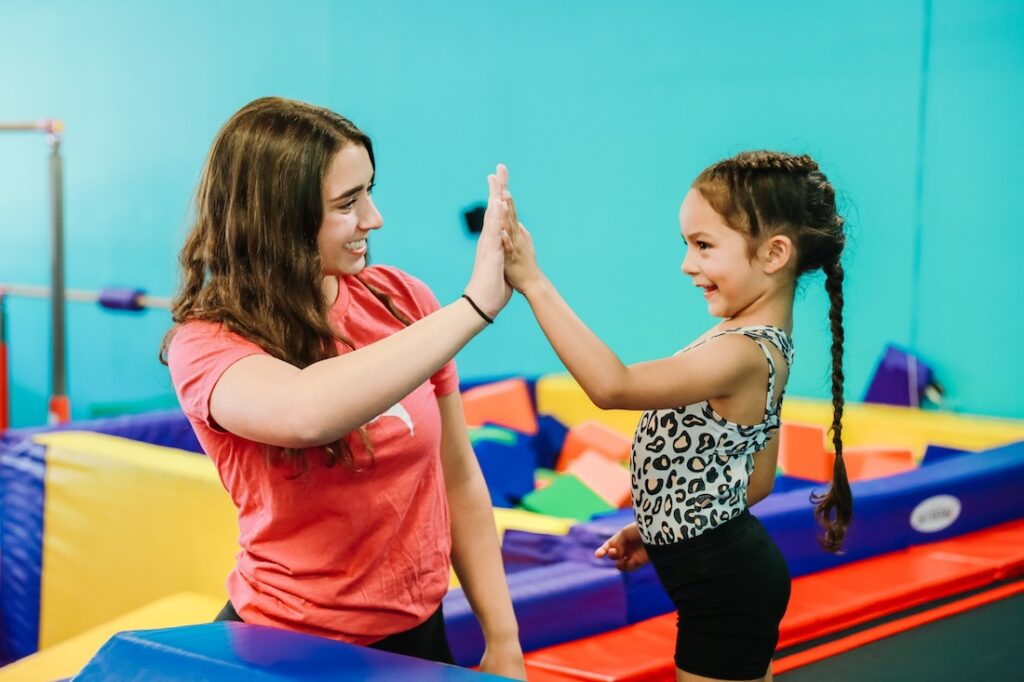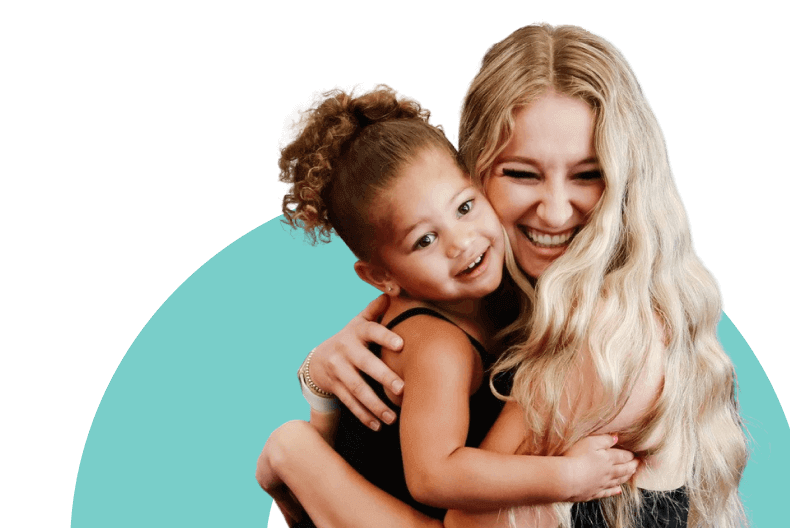Many parents worry: Is my child truly ready for school? Reading and basic math skills matter, but school readiness extends far beyond academics.
Extracurricular activities can play a powerful part in helping kids develop socially, emotionally, and cognitively.
If you’re wondering how to set your kids up for success, this article is for you! We’ll explore what extracurricular activities are, why they matter, and how they prepare kids for lifelong learning.
What Are Extracurricular Activities and Why Do They Matter?
Extracurricular activities are structured programs outside regular classroom time that don’t offer grades or academic credit, like gymnastics, dance, music, art, or STEM clubs.
For younger children, these activities are often their first taste of structured routines and peer interaction outside of the home.
The benefits extend far beyond fun. Research shows that extracurricular activities help children build essential life skills, strengthen academic foundations, and foster positive relationships.
Some of the most important outcomes include:
- Greater social and emotional maturity
- Improved cognitive skills and early literacy development
- Increased self-confidence and independence
With the right balance, these experiences can significantly impact how ready a child feels when they participate in school.
How Extracurricular Activities Support School Readiness in Multiple Ways
School readiness isn’t just about learning letters and numbers. Extracurricular activities provide the perfect setting to nurture soft skills that give children the opportunity to grow academically, socially, and emotionally.
Building Academic Foundations Through Play and Structure
When children participate in structured activities, they develop a deeper connection to learning.
Studies have found that extracurriculars can lead to significant gains in math, reading, and science scores, as well as improved GPAs and long-term academic success.
Key benefits include:
- Exposure to new concepts like counting, pattern recognition, and problem-solving
- Improved focus and persistence through repeated practice
- Early familiarity with following instructions and structured routines
Because these lessons are embedded in fun and engaging settings, children are more likely to retain what they learn. The skills they develop also carry over seamlessly into the classroom.
Developing Social and Emotional Skills That Last
The benefits extend well beyond academics. Group extracurriculars are a safe space for children to build relationships and practice teamwork.
For example:
- Children learn how to communicate and work together with other kids their age.
- They build a sense of belonging, which can make the transition into school smoother.
- They practice empathy and problem-solving when challenges arise.
Kids who feel connected to their peers and instructors are also more likely to engage positively in the classroom. Through these interactions, they build resilience and confidence.
Fostering Independence and Confidence in Young Learners
Another key benefit of extracurricular activities is greater independence. Many programs give children the chance to navigate situations without constant parental guidance, encouraging them to problem-solve and make decisions on their own.
These experiences help kids feel more comfortable participating in lessons, asking questions, and taking on new challenges without fear when they enter the classroom.
How to Choose the Right Extracurricular Activities for Your Child’s Growth
Finding the right balance of activities is essential. While extracurriculars can have tremendous benefits, over-scheduling can lead to stress and fatigue. Here are some practical tips to guide your decision:
Match their interests. Let your child try different activities — dance, gymnastics, swimming, art, or music — to discover what excites them. When children are genuinely interested, they will stay engaged and benefit from the experience.
Ensure age-appropriate options. Younger children thrive in shorter, play-based classes that gradually build structure. Older children can explore programs with more complexity and challenge.
Look for quality instruction. Instructors who are positive, patient, and experienced can make all the difference. They help children feel safe and supported while encouraging growth.
Maintain balance with activities. One or two well-chosen activities each week are usually enough to support development without overwhelming them.
Remember, extracurricular activities should complement family time and schoolwork, not compete with it. This balance helps children enjoy their activities while balancing them with crucial family interaction.
How America’s Kids in Motion Helps Children Build School Readiness Skills
At America’s Kids in Motion, we design extracurricular programs that are tailored to help children thrive both in and out of the classroom.
Our classes intentionally blend structure, creativity, and play to nurture the whole child and help kids:
- Learn to follow routines and collaborate with peers in a safe, supportive environment
- Develop motor skills, coordination, and focus through age-appropriate physical activities
- Grow their confidence while learning new skills and receiving feedback from instructors
- Build friendships and social skills that lay the foundation for positive school experiences
Ready to Set Your Child Up for Success?
Join America’s Kids In Motion today! Our carefully designed programs help children build confidence, social skills, and school readiness through engaging extracurricular activities.
We encourage families to start early, so children are better prepared in the classroom and beyond.
Reserve your child’s spot in a class now and watch them thrive!




